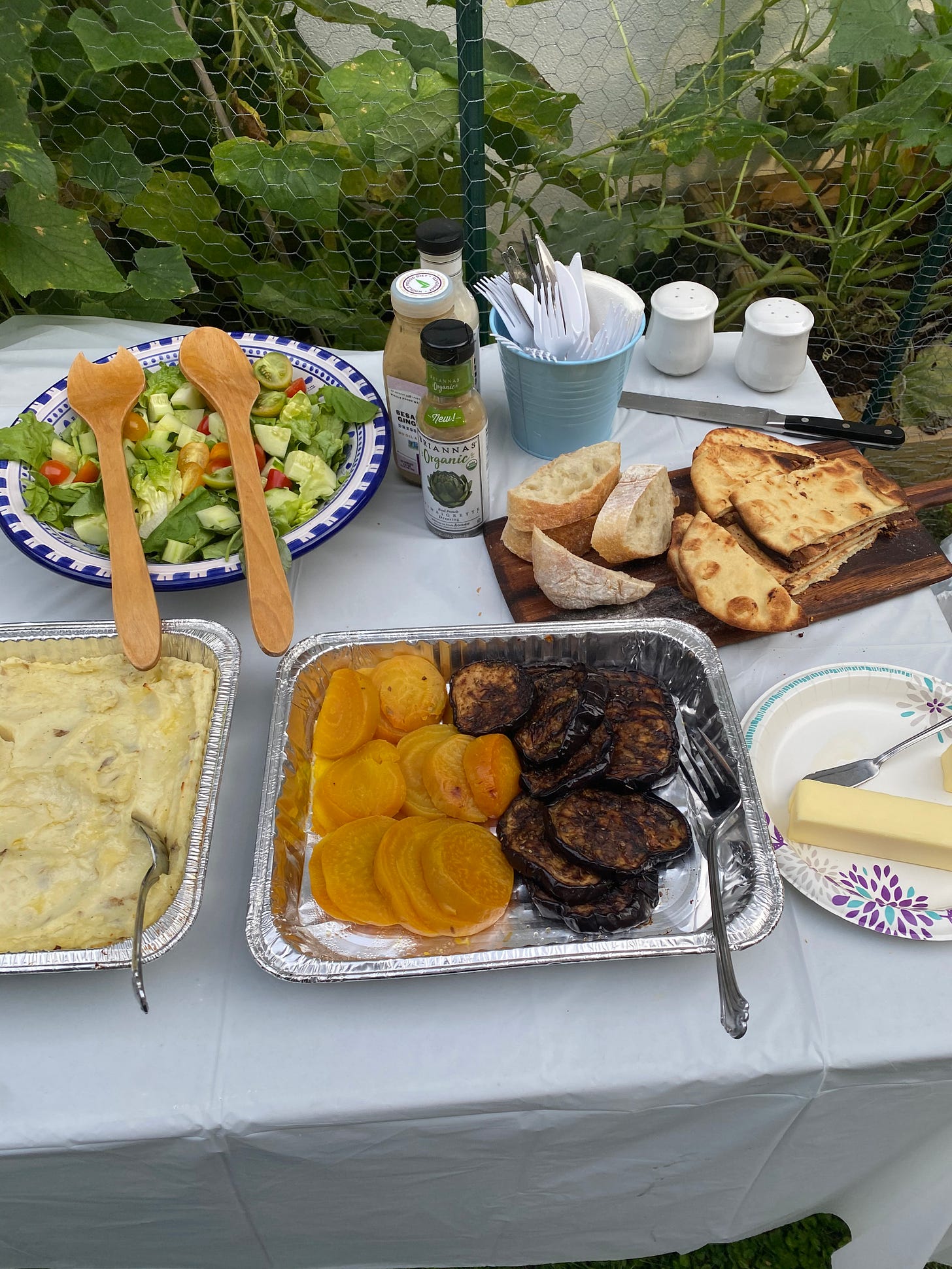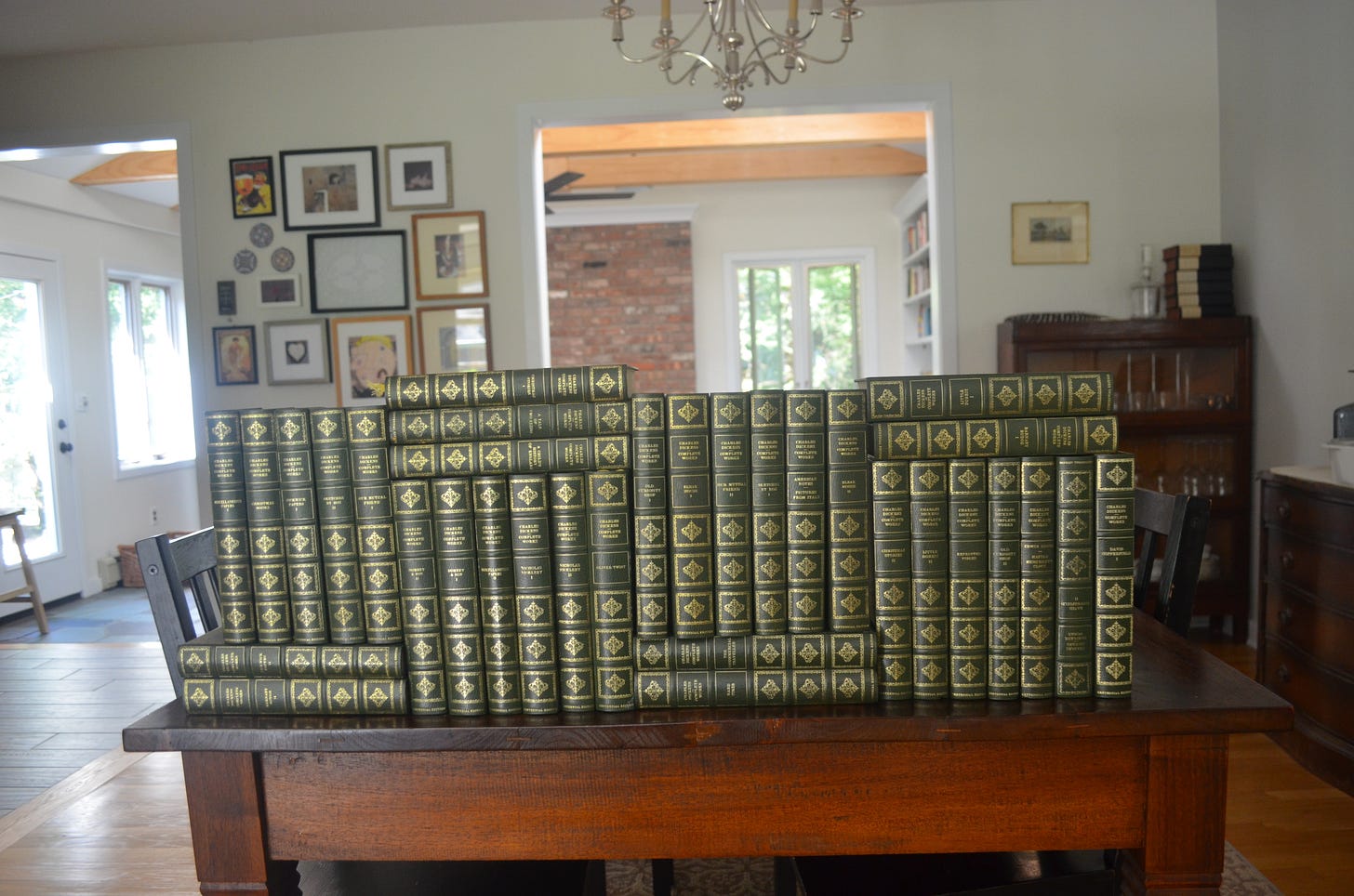Home Revolution, Apt. 11D Newsletter
Apt. 11D
Laura McKenna's Publications and Posts
Home Revolution, Apt. 11D Newsletter, September 11, 2020
Revolutions happen in many forms. Sometimes a revolution is fought with muskets and guillotines. Sometimes revolutions occur when a 16th century Italian astronomer looks up into the night sky and realizes that the earth revolves around the sun. And sometimes revolutions happen when a new mode of mass producing products takes hold, resulting in the migration of rural agrarian population to large urban centers.
We’re in the midst of the COVID revolution. It’s bringing changes on a grander scale than masks and social distancing. These changes began when a million computers were packaged with free AOL programs in the early 1990s, giving us our first taste of email, chatrooms, and online news. There can be no COVID revolution without the Internet, but COVID is the kick-in-the-ass making potential changes into real changes. Let me explain.
For two decades, most business people recognized that much of their work could happen at home. But folks like my husband, who spends all day in front of a computer, kept showing up to the office, despite its 3-hour commute, because business honchos didn’t believe that people would continue to work hard at home. There was no pressure to make changes from the bottom either, because people fretted that working home would make them vulnerable during budget cut times.
In a matter of months, those views changed. Business leaders saw that their workers did just as much work from home, as they did in the office. Computer cameras and Zoom chats keep workers connected. If everyone is home, then individual workers don’t feel vulnerable for working from home. Most importantly, working from home is saving the corporate world tons and tons of money in everything from reduced cleaning staff to a reduced real estate footprint. I doubt if my husband will regularly take the Jersey train into lower Manhattan ever again. He’s home for good.
Now, not all jobs can be done remotely. Physical therapists still need to manipulate real spines and shoulders. Little children cannot socialize with peers on a laptop. Our broken Subaru needs some TLC from Jimmy the mechanic. But there are enough jobs -- lawyers, traders, writers -- that are making the permanent transition to home, and all of this is having a major impact on society.
We’re seeing the rush of city folks to suburban locations. It’s fine to live in a cramped city apartment, when you are only there to sleep at night. You can store your sweaters in the oven, when there are a bazillion great restaurants downstairs and you never cook. But now, people need more elbow room at home. They need backyards and dedicated home offices. Friends in the city tell me that they are worried about the boarded up stores and the increased homeless population and the rising crime rate. Restaurants and museums - a big draw of cities -- are on life support. So, here in the suburbs, we’re seeing the mass migration to our neighborhoods. Real estate agents are cold calling me to see if we’ll move.
But this might be just the first step. People tolerate high prices for tiny homes with major tax bills in the suburbs, in exchange for a commuter train and schools. But what if workers never return to the office? What if public education never recovers? Why even bother with the suburbs when we live in a massive country with lots of opportunities? We could be in the midst of a de-industrial revolution -- a return to rural life.
One of Steve’s co-workers was in Lake Placid on vacation when the pandemic hit. Instead of returning to the city, his family never left. Instead, they rented a house in that beautiful location. School and work was all online anyway. They might be living up in the Adirondacks mountains in upstate New York permanently now.
Because I’m an education policy geek, I always come back to schools. Right now, Ian’s teachers are doing superhero work, teaching kids in the classroom and at home AT THE SAME TIME (whew!) via little cameras mounted on classroom walls. In other nearby towns, the teachers refused to return to their physical schools altogether, and parents are marching in the streets in protest. We’ll see how this all plays out this year.
If the suburbs can’t manage to return to normal public education in the next few months, then there are few reasons to live here when there are cheaper options elsewhere. This summer, we drove our Subaru to six states (hence its visit to Jimmy the mechanic). We saw lakes and beaches, old graceful homes in the shadow of high mountains, red barns in fields of corn. Our car conversations have turned from theoretical, dream-world conversations about relocating into real ones, browsing home prices on the Zillow app.
We’re not ready for such drastic changes yet, but the small changes that have happened in our lives in the past few months are still tangible and important. My husband spends all day with our kids, instead of one exhausted hour in the evening. Last night, he took Ian to a cooking class at 5:00, so I could meet up with a group of my favorite special ed moms for drinks at the Bicari Grill, a restaurant that has relocated to a tent in a parking lot. He gained 15 hours every week - time previously spent dozing on a commuter train. He can help with household chores, freeing me up to do jobs like this newsletter.
Even if the nation-wide revolution doesn’t materialize, the revolution in our household has been sweet.
Snapshots




Links

On the blog, I wrote about:
recent girlie/home purchases
self-censorship to avoid giving fuel to crazy people
ICYMI, here's my latest article for The Atlantic about a special program (and special teacher) for traumatized students in Oklahoma. For the Education Writer's Education website, I wrote about how difficult it was to write about education, while home schooling a kid with autism this spring.
My thoughts are with all the firefighters out west, and with people who have lost homes. The Daily had a super interesting episode about how local political choices are making the situation worse.
Why are colleges hiring teen social influencers? Problematic much?
My thoughts are also with the family of people who passed on September 11th.

